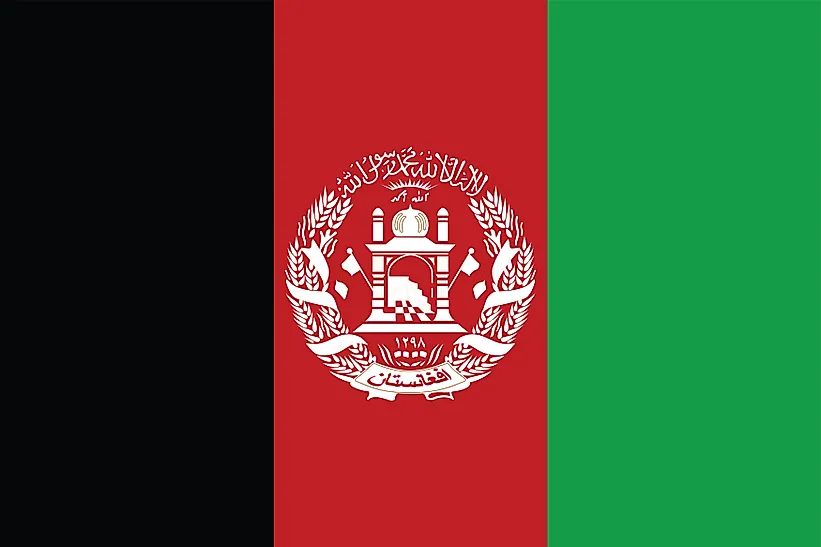
아프가니스탄
| 대륙 | 아시아 |
| 자본 | Kabul |
| 인구 | 33,332,025 |
| GDP | $64.08억 |
| 1인당 GDP | $2,000 |
| 다이얼링 코드 | +93 |
| ISO 코드(2글자) | AF |
| ISO 코드(3글자) | AFG |
아프가니스탄 정보
고대 문명과 현대의 도전이 얽혀 놀라운 회복력과 문화적 풍요로움이 공존하는 땅, 아프가니스탄에 오신 것을 환영합니다. 중앙아시아와 남아시아의 교차로에 위치한 아프가니스탄은 수천 년 동안 무역과 문화 교류의 중요한 교차로였습니다. 약 3,800만 명의 인구와 652,230평방킬로미터에 달하는 영토를 가진 이 내륙 국가는 세계에서 가장 매혹적인 역사적 보물과 극적인 풍경을 보유하고 있습니다.
지리적 특징과 자연의 아름다움
아프가니스탄의 지형은 이 나라의 심장부를 가로지르는 웅장한 힌두 쿠시 산맥이 지배하는 자연 다양성의 걸작입니다. 높이가 7,000미터가 넘는 이 우뚝 솟은 봉우리들은 이 나라의 다양한 지형에 극적인 배경을 만들어냅니다. 눈 덮인 산에서 비옥한 계곡으로, 울창한 오아시스에서 사막 평야로 풍경이 전환됩니다.
아프가니스탄의 독특한 지형 덕분에 다양한 동식물이 서식하는 독특한 생태 지대가 형성되었습니다. 북동쪽의 좁은 영토인 와칸 회랑은 아프가니스탄과 중국을 연결하며 세계에서 가장 아름다운 산악 경관을 자랑합니다. 아프가니스탄 최초의 국립공원인 반드에 아미르 호수는 석회암 절벽을 배경으로 6개의 짙푸른 호수가 펼쳐져 있어 자연을 거스르는 듯한 이색적인 풍경을 연출합니다.
북쪽에는 고대 아무 다리야 강이 인접 국가와 자연적인 국경을 이루고 있으며, 남쪽 지역에는 황금빛 모래 언덕이 끝없이 펼쳐진 레지스탄 사막을 비롯한 광활한 사막이 펼쳐져 있습니다.
문화 유산과 전통
아프가니스탄 문화는 수많은 문명이 교차하는 지리적 위치로 인해 형성된 풍부한 전통의 모자이크입니다. 이 나라의 문화유산은 페르시아, 중앙아시아, 인도 전통의 영향을 반영하여 수 세기 동안 지속되어 온 독특한 정체성을 만들어 냈습니다.
"멜마스티아"로 알려진 아프가니스탄의 전통적인 환대는 전설적이며 사회적 교류의 초석으로 남아 있습니다. 방문객들은 손님을 대접하는 것을 큰 영광으로 여기는 아프간 사람들의 따뜻함과 관대함에 놀라는 경우가 많습니다. 이러한 문화적 가치는 "손님은 신이 내린 선물"이라는 유명한 아프간 속담에도 반영되어 있습니다.
아프간 카펫의 복잡한 패턴부터 루밥과 타블라 같은 악기로 연주하는 전통 음악의 선율에 이르기까지 아프간의 예술적 전통은 매우 인상적입니다. 특히 직물, 보석, 금속공예 등 아프가니스탄의 장인 정신은 여러 세대에 걸쳐 전해 내려온 정교한 예술적 감성을 보여줍니다.
역사 여행
아프가니스탄의 역사는 제국, 정복, 문화 교류에 관한 흥미로운 이야기입니다. 알렉산더 대왕부터 징기스칸에 이르기까지 수많은 문명이 이 땅에 흔적을 남겼습니다. 아프가니스탄은 고대 실크로드에서 중요한 역할을 담당하며 동서양 간의 무역과 문화 교류의 허브 역할을 했습니다.
이 지역은 그레코박트리아 왕국, 쿠샨 제국, 티무르 왕조 등 다양한 문명의 본거지였으며, 각 문명은 풍부한 문화 유산에 기여했습니다. 바미얀 계곡과 같은 고고학 유적지는 이러한 다양한 역사를 증명하며, 한때 '도시의 어머니'로 불렸던 발크와 같은 고대 도시는 아프가니스탄의 역사적 중요성을 상기시켜 줍니다.
현대 경제 환경
오늘날 아프가니스탄은 문화유산을 보존하면서 경제를 재건하고 현대화하기 위해 노력하고 있습니다. 아프가니스탄의 경제는 주로 농업이며, 농업과 가축 사육이 주요 생계 수단입니다. 아프가니스탄은 과일, 특히 석류, 포도, 멜론으로 유명하며 전 세계로 수출되고 있습니다.
아프가니스탄은 또한 구리, 철광석, 희토류 원소 및 보석을 포함한 상당한 광물 자원을 보유하고 있습니다. 유명한 아프가니스탄 청금석은 수천 년 동안 귀하게 여겨져 왔으며 국제 시장에서 계속 인기를 얻고 있습니다.
국제 관계 및 글로벌 포지셔닝
현대 세계 질서에서 아프가니스탄의 전략적 위치는 국제 관계에서 계속해서 중요한 위치를 차지하고 있습니다. 아프가니스탄은 외교 관계를 강화하고 지역 협력 이니셔티브에 참여하기 위해 적극적으로 노력하고 있습니다. 아프가니스탄의 다양한 국제기구 가입과 지역 포럼 참여는 아프가니스탄이 글로벌 커뮤니티에 참여하고자 하는 의지를 보여줍니다.
알고 계셨나요?
- 아프가니스탄은 6,000년 이상 채굴된 진한 파란색 준보석인 청금석이 세계에서 가장 많이 매장된 곳인가요?
- 현존하는 가장 오래된 개 품종 중 하나인 아프간 하운드는 아프가니스탄의 산에서 유래했으며 유목 부족의 사냥에 사용되었나요?
- 아프가니스탄의 국민 스포츠인 부즈카시 경기는 머리 없는 염소 사체를 이용해 말을 타고 하는 경기로 특별한 기술과 용기가 필요하다?
결론
아프가니스탄은 인간의 회복탄력성과 문화적 풍요로움을 보여주는 증거입니다. 역사를 통틀어 수많은 도전에 직면했지만 아프가니스탄은 고유한 유산을 보존하면서 미래를 향해 나아가고 있습니다. 숨막히는 풍경부터 따뜻한 마음을 가진 사람들까지, 아프가니스탄은 전통과 현대가 놀랍도록 공존하는 매혹적인 땅을 엿볼 수 있는 곳입니다.





